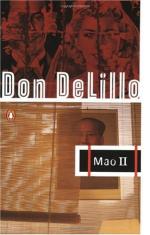|
This section contains 7,693 words (approx. 26 pages at 300 words per page) |

|
SOURCE: “‘What About a Problem That Doesn't Have a Solution?’: Stone's A Flag for Sunrise, DeLillo's Mao II, and the Politics of Political Fiction,” in Critique, Vol. 40, No. 3, Spring, 1999, pp. 215–29.
In the following essay, Bull identifies the conventions of “a literature of impasse” in Mao II and Robert Stone's A Flag for Sunrise, highlighting the political implications of both narratives.
The political novel, says Irving Howe, is a work of fiction alive with the “internal tensions” born of abstract ideologies colliding with “representations of human behavior and feeling” (20)—and since World War II, by his estimation, such fiction has only been produced outside the West (254). In his 1986 epilogue to Politics and the Novel. Howe describes authors such as V. S. Naipaul, Nadine Gordimer, and Milan Kundera—among others—as creators of “a literature of blockage, a literature of impasse” (252) that offers “no way out of the political dilemmas...
|
This section contains 7,693 words (approx. 26 pages at 300 words per page) |

|


